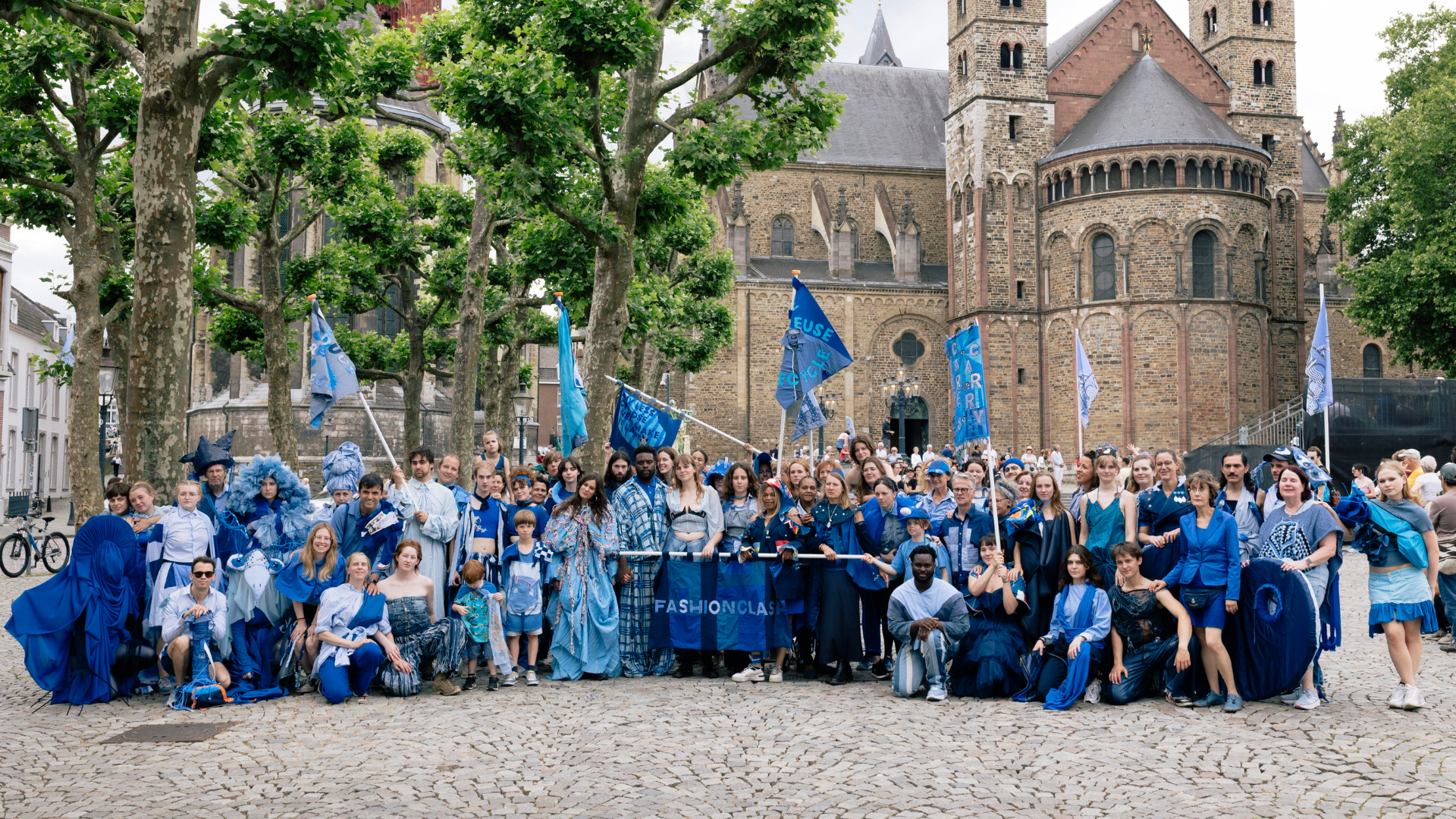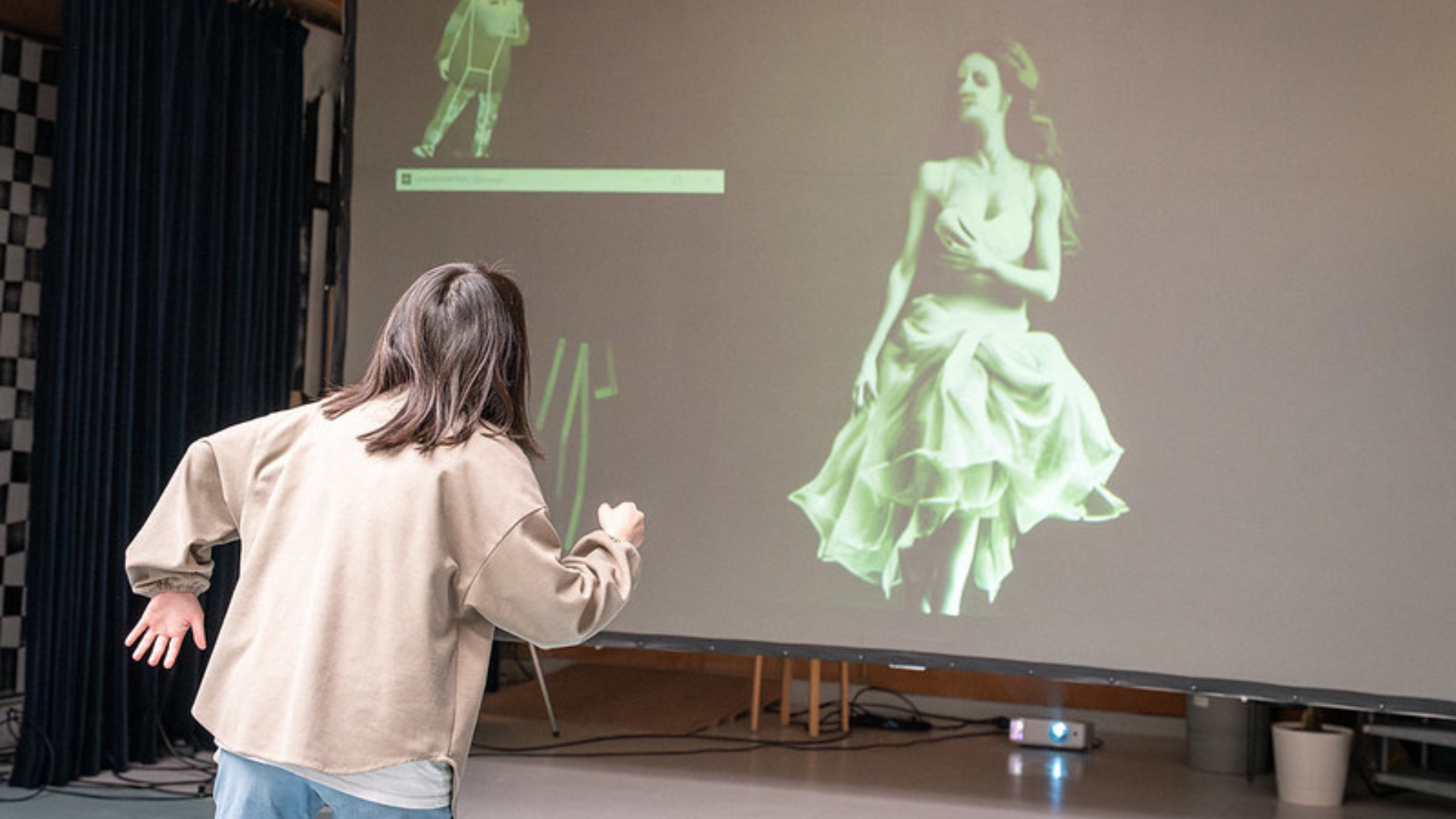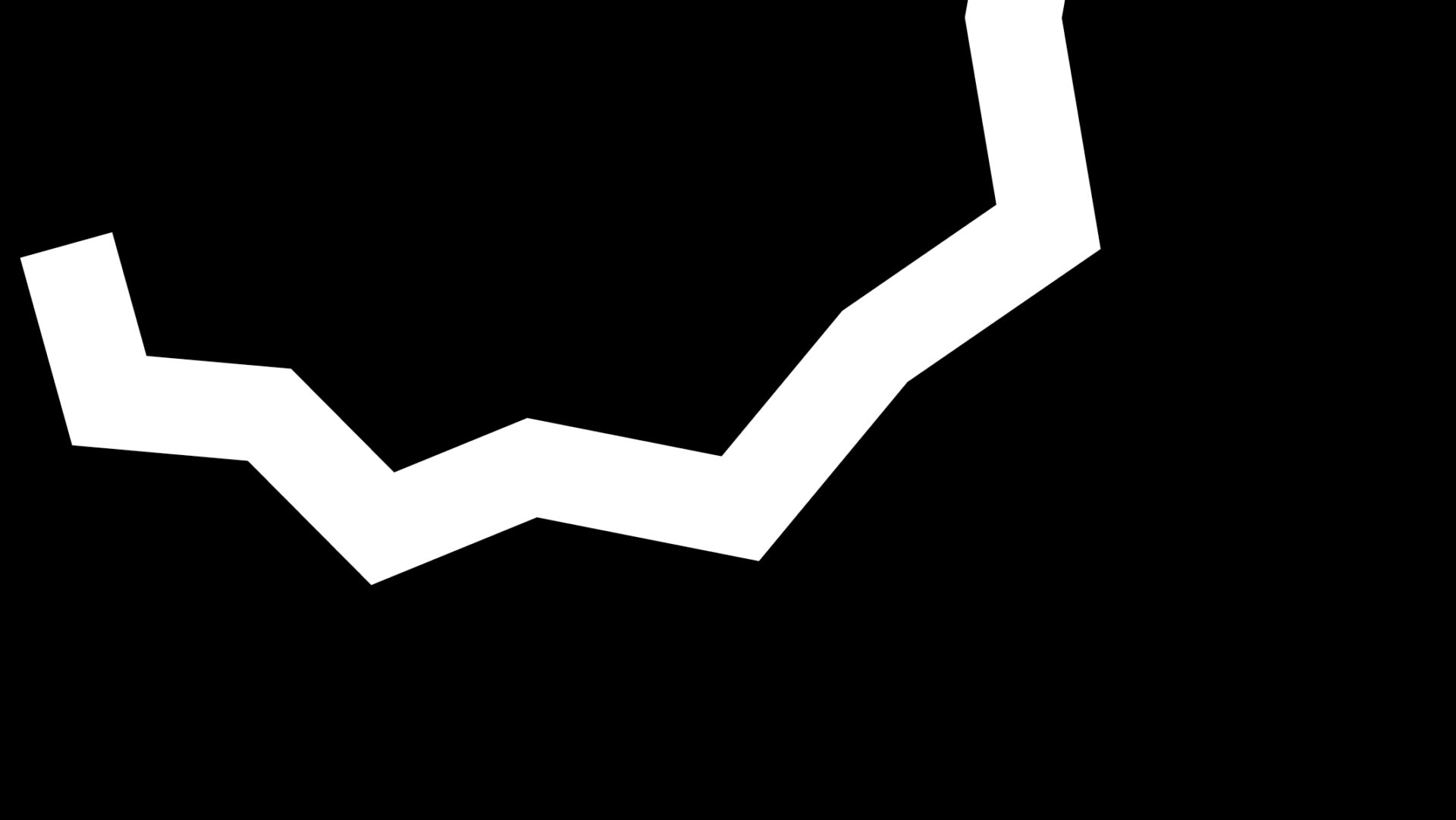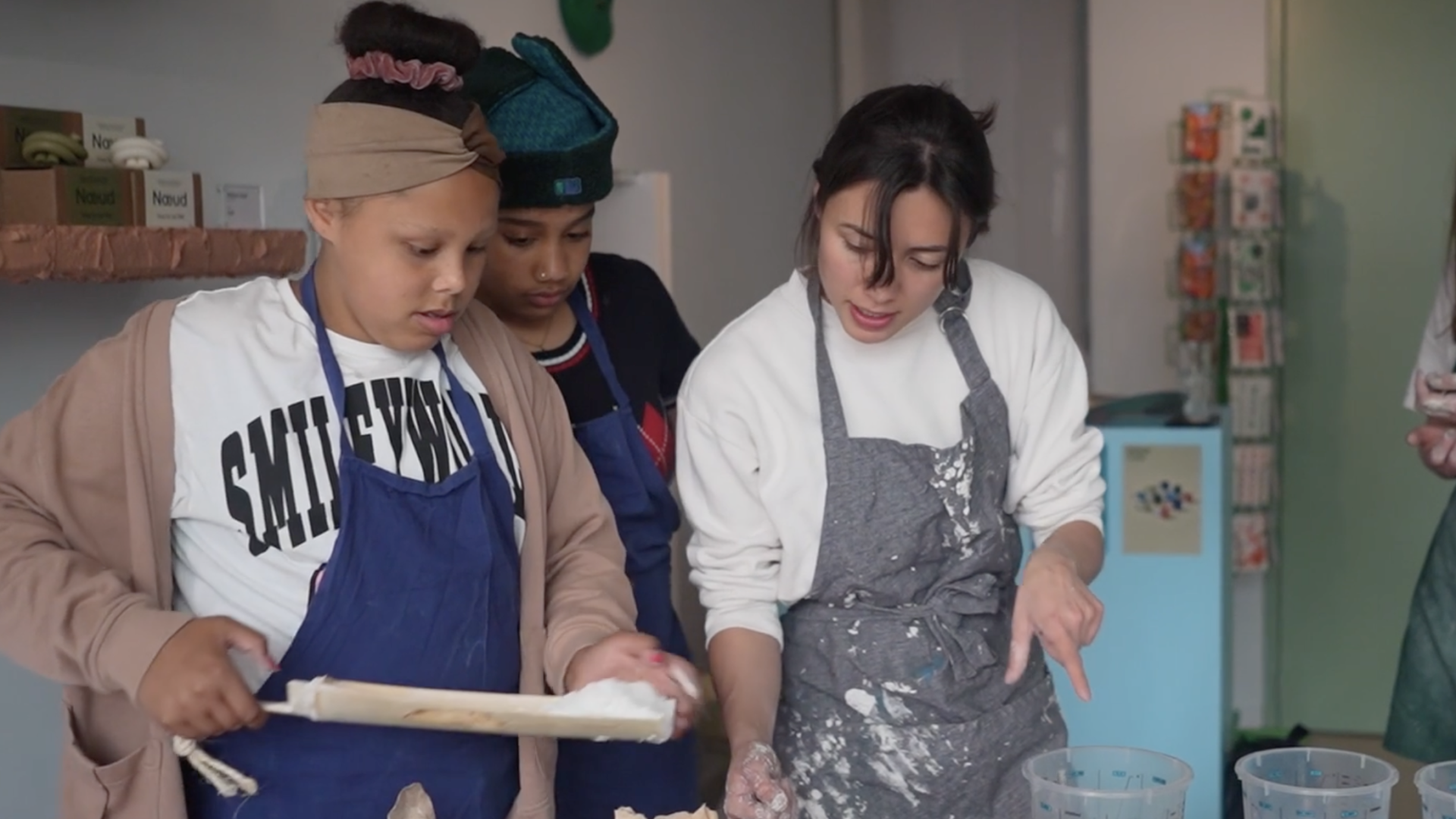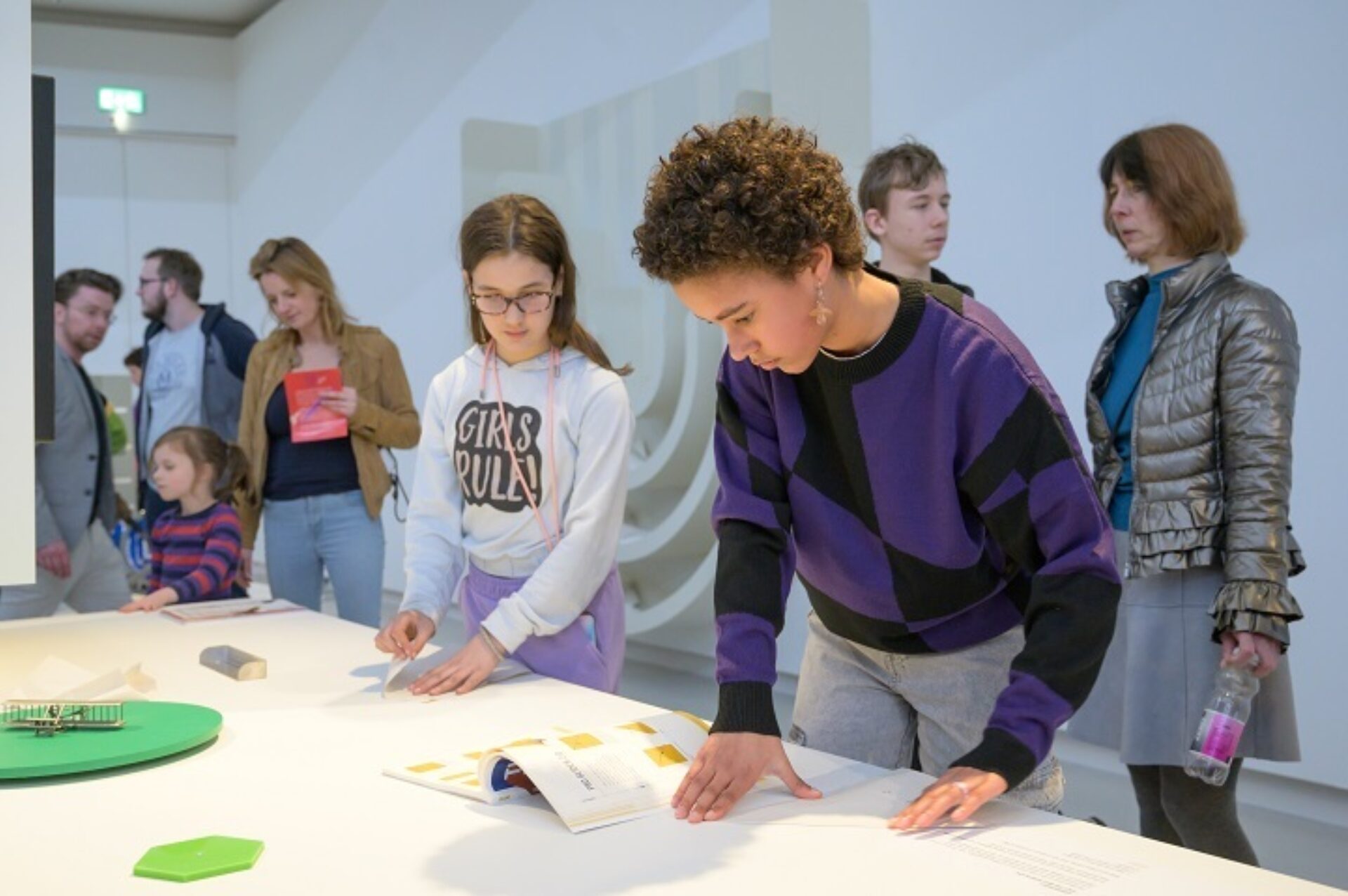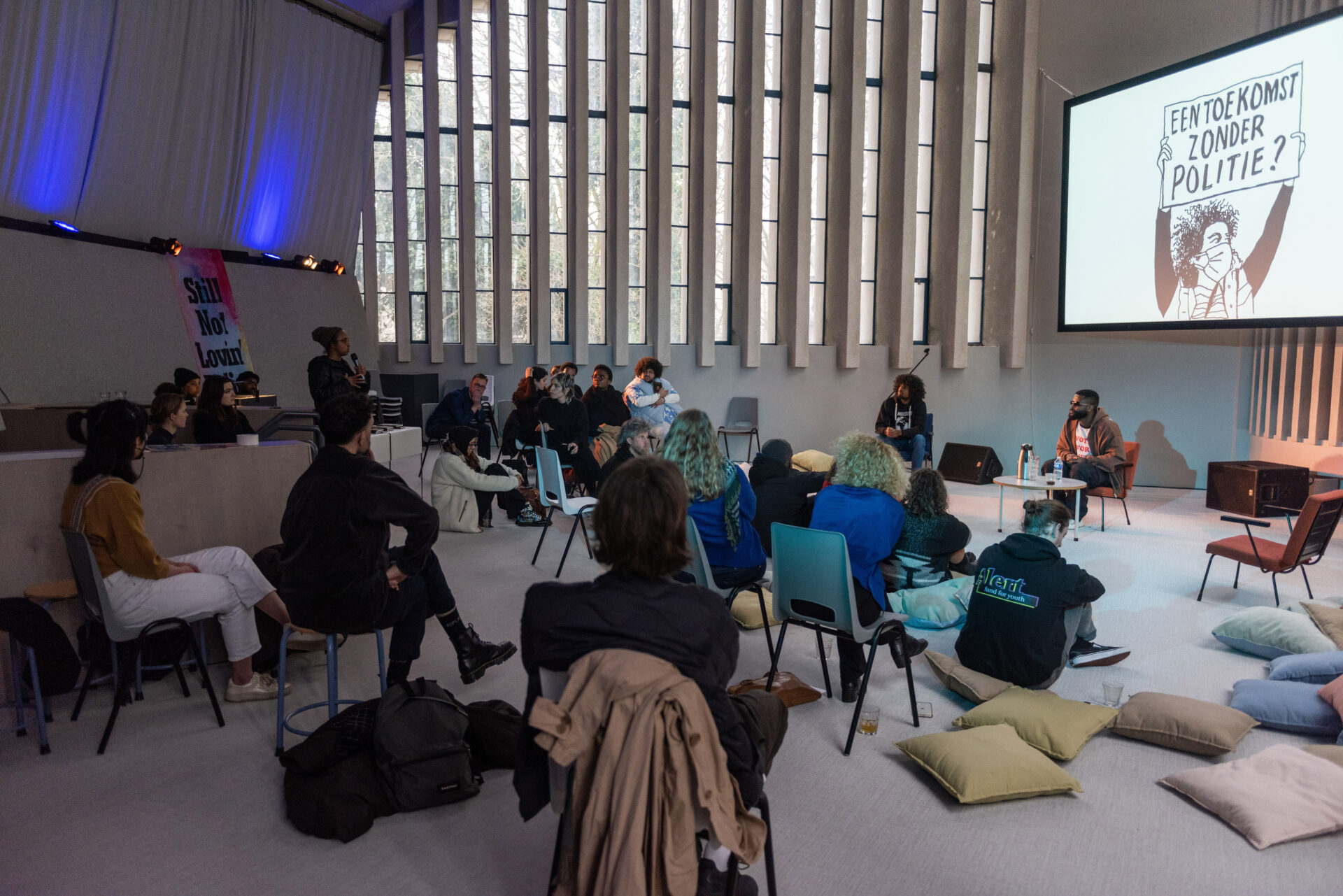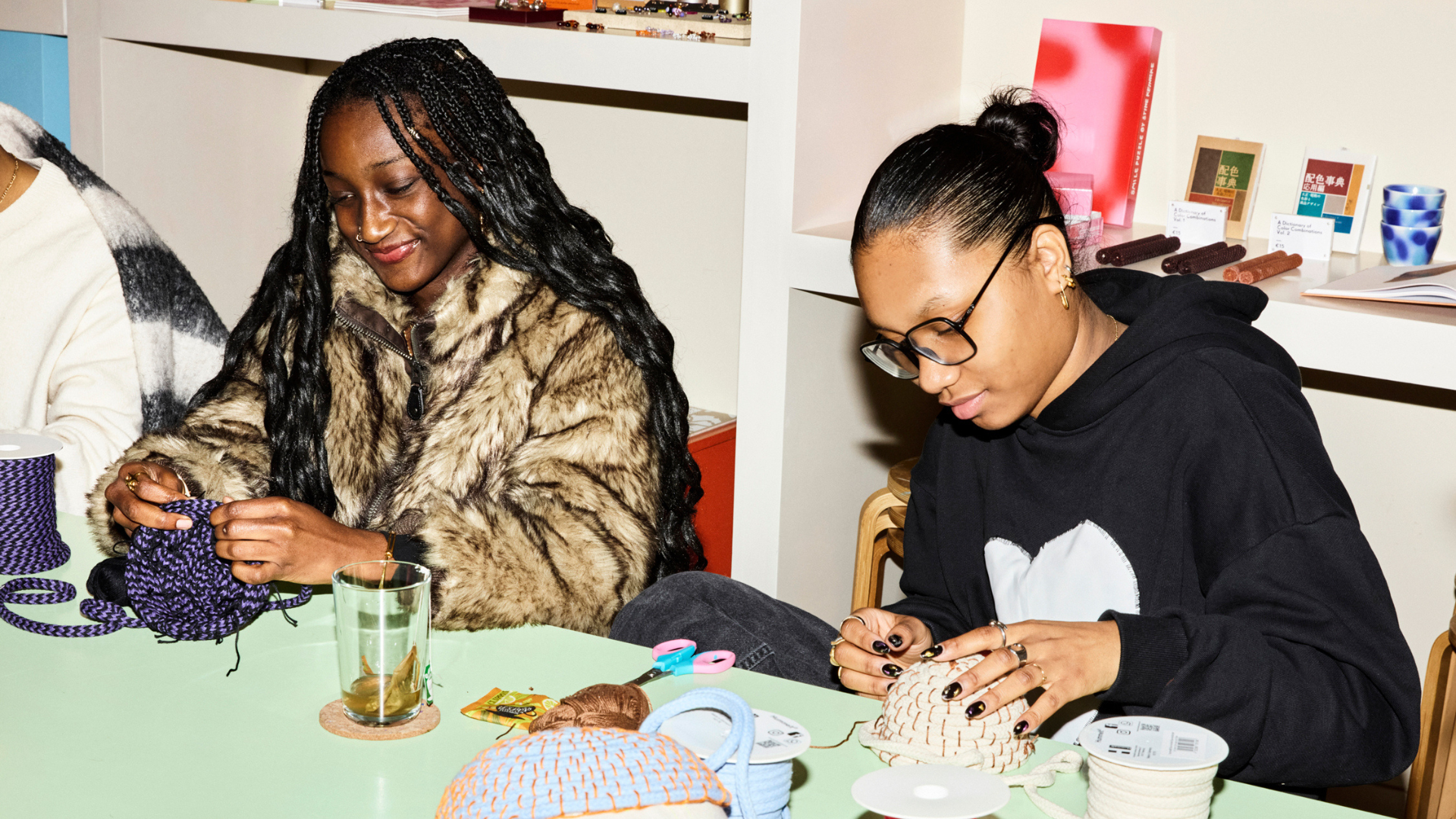

Jan Belon and Bernhard Lenger, instigators of The SEED Programme
In recent years, informal platforms that foster design skills in young talent have emerged in several cities. The Open Call Platforms for design-based learning gives these initiatives an impetus. In 2023, the Creative Industries Fund NL is supporting 14 of these inspiring projects. One of these is the SEED Programme, a development programme for novice social designers, set up by Afdeling Buitengenwone Zaken and Foundation We Are. Committed professionals share their knowledge, experience and passion for the field, helping starters on their path.
It’s buzzing in Foundation We Are’s new headquarters, located in one of the former Philips’ factory buildings in Eindhoven’s Strijp-S district. The clean-lined spaces of the social-design studio still smell of paint and freshly sawn planks. On wooden benches in front of a projector and presentation screen, young designers, all in their early twenties, ask about each other’s backgrounds with interest. This spring, they responded to the open call for a traineeship at the SEED Programme. They were selected by the SEED Programme jury ‘because they have potential’. And this afternoon, they are being paired with their coach who comes from the professional practice of social design. At the kick-off today, juniors and seniors will formulate development goals and discuss the issues the starter will be working on.
Itching to pass on experience
Bernhard Lenger from Foundation We Are and Jan Belon address the group by way of introduction. Twelve years ago, Jan was one of the founders of Afdeling Buitengewone Zaken, a Rotterdam-based agency that focuses on societal innovation through social design. Enthusiastically, he tells participants in the SEED Programme: ‘We're itching to pass on experience.’ Bernhard Lenger: ‘If only we had had a coach of our own in our early days. It’s good to have experienced people around you. When you’ve just finished your studies, you are motivated. But how do you get started? With the SEED Programme, we want to build a bridge between education and the labour market.’

how the seed for SEED was planted
While the participants and coaches are talking to each other, Jan Belon explains how the collaboration between Afdeling Buitengewone Zaken and Foundation We Are and the idea for the SEED Programme came about. ‘We are both relatively large collectives and have been talking to each other for years. What connects us and other social-design studios is that together we want to make the world a little better. We are happy for each other to get work and are therefore not competitors but more competitor-colleagues. As Afdeling Buitengewone Zaken, we set up Social Design Showdown a few years ago, a platform through which we try to further develop our field through knowledge-sharing. We do this by forming action teams that conduct research, by working with clients to see how we can achieve greater impact, and through events we organize a few times a year. It now attracts between 60 and 100 designers per edition, including many young designers. We were asked by them: ‘You people are established, how do we get there? How can we get started in the field? And so the seed was planted for SEED, which stands for Socially Engaged Education and Development. It is a professionalization programme that focuses on personal development.’
With the SEED Programme, Afdeling Buitengewone Zaken and Foundation We Are give socially committed designers the chance to get off to a flying start with their careers. Central to this are personal development in positioning, personal leadership and entrepreneurial skills. This is facilitated in part by four master classes, which are open to everyone. Two of these master classes were held in recent months, with the other two to follow soon. Another component of the SEED Programme was the open call for the traineeship, from which a select group of 10 talented juniors emerged to be matched with a seasoned senior.

learning doesn’t stop when school ends
One of those chosen is 27-year-old Linda Huijbers, who followed the Man and Leisure programme at the Design Academy in Eindhoven and graduated in 2021. ‘I started working as a freelancer after that, and I mainly have assignments in the field of graphic design. Great, but my heart lies in investigating social problems. I already have some basic skills in that, but I would like to develop myself further. For example, how do you find a clear focus in a large study?'
She continues: ‘When I heard about the SEED Programme through social media, I immediately bought tickets for all the master classes. I also responded to the open call for the traineeship. Because I seize every opportunity I can to grow. Last Friday, I heard to my great surprise that I have been selected. My coach will be Hans Foks, of Studio Vuurrood in Rotterdam, a design agency that designs campaigns and carries out many educational projects, both physical and digital. Hans just told me that the studio itself also involves external experts, in order to stay sharp. Learning doesn’t stop when school ends, it continues for life. Very interesting!’

Jan Belon: ‘Lifelong learning is also an important pillar of our programme. Many freshly graduated designers are idealistic, and think they can solve world problems. But as social designers, we are not magicians. Of course we can make a difference, but not as individuals. And not right away. With SEED, we want to convey that working on social issues is a learning process that is always ongoing. That you need to understand policymakers and stakeholders, and they need to understand you. You have to learn to speak each other’s language.’
Working on social issues is a learning process
Jan Belon concludes: ‘Realizing this is part of your professionalization journey as a social designer. We are incredibly grateful to have received the grant from the Fund. It is a great opportunity to work with other seniors and juniors to discover how this can be designed in a broad way. We are bound to make mistakes in developing our format, but that’s just part of the process. We will learn from that.’
Text: Iris Stam
